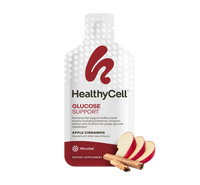High cholesterol is a common health concern affecting millions of people worldwide. It is common knowledge that high cholesterol can cause serious health issues, such as heart disease and stroke. However, recent research suggests there may be a link between high cholesterol and headaches. Headaches are a common complaint, affecting tens of millions of adults in the United States. While there are many different causes of headaches (including stress, lack of sleep, and dehydration), high cholesterol may also contribute to headaches. We will explore the link between high cholesterol and headaches, including the underlying mechanisms and potential treatment options. In addition, we will discuss the importance of managing high cholesterol levels for overall health and well-being. According to the CDC, more than 90 million adult Americans have high cholesterol, also known as hyperlipidemia. High cholesterol can cause several health issues, such as high blood pressure, coronary artery disease, cardiac arrest, and stroke. Risk factors for hyperlipidemia include genetics, nutrition, and lifestyle choices that can raise cholesterol levels and cause significant health implications.
The link between high cholesterol and headaches has been studied recently, and growing evidence suggests a connection. One potential mechanism for this link is that high cholesterol levels can lead to plaque formation in the arteries that supply blood to the brain. These plaques can narrow the arteries and restrict blood flow, leading to headaches. A study published in "Headache" found that people with high cholesterol levels were more likely to experience migraines. The study followed 25,000 people over 20 years and found that those with higher cholesterol levels were more likely to develop migraines. The authors of this article suggest that this may be due to inflammation and cholesterol building up in blood vessels (1).
A different study published in "The Journal of Headache and Pain" examined the relationship between cholesterol levels and tension-type headaches. Tension-type headaches are a common type of headache that is often associated with stress. The study found that people with higher cholesterol levels were more likely to experience tension-type headaches and that treatment with statin medications (which lower cholesterol levels) could help reduce the frequency and intensity of headaches (2). A review article published in the journal "Current Pain and Headache Reports" noted that high cholesterol is associated with an increased risk of headaches, including migraines and tension-type headaches. The authors suggest that this link may be related to the effects of cholesterol on blood vessel function and inflammation (3). These findings imply that there may be a correlation, even though the precise mechanism underlying the association between high cholesterol and headaches is not entirely understood. Managing high cholesterol levels through medication and lifestyle changes may help reduce the frequency and intensity of headaches. For tips on ways to lower cholesterol, check out How Long Does It Take To Lower Cholesterol? It’s important to contact a healthcare professional if you are experiencing frequent headaches, as you may require treatment beyond managing cholesterol levels.
What is Cholesterol?
It is important to understand what cholesterol is and why excessive amounts of "bad cholesterol" can cause a variety of problems. Cholesterol is a type of fat that is necessary for our body to function correctly. It is found in every cell of our body and helps to build and maintain cell membranes. This fat travels through the body as either free-floating droplets or compound structures combined with protein. These compound structures are also known as cholesterol.
Good Cholesterol Vs. Bad Cholesterol
There are two types of cholesterol: good cholesterol and bad cholesterol, which refer to different kinds of cholesterol in our blood. Good cholesterol is also called high-density lipoprotein (HDL) cholesterol. This type of cholesterol helps to remove excess cholesterol from our blood and transport it to the liver to be broken down and removed from the body. High HDL cholesterol levels can protect against heart disease and other health problems. Bad cholesterol, on the other hand, is also called low-density lipoprotein (LDL) cholesterol. This type of cholesterol can cause build-up in our arteries and form plaque, leading to blockages and increasing the risk for heart disease and other health problems. High LDL cholesterol levels are considered a risk factor for heart disease. Overall, HDL cholesterol is "good" because it helps remove excess cholesterol from our blood. In contrast, LDL cholesterol is harmful because it can build up and create blockages in our arteries.
What factors can affect cholesterol?
- Diet: High cholesterol and triglyceride levels can result from a diet that is too abundant in fat, especially saturated fats. A diet high in fat can raise blood cholesterol levels over time, which can have harmful long-term effects.
- Genetic factors: Hereditary variables that are passed down can be risk factors for hyperlipidemia. A genetic disorder known as familial or inherited hypercholesterolemia causes elevated cholesterol levels in numerous members of each generation.
- Being overweight or obese: Activity levels significantly affect blood cholesterol levels. Overweight and obese people are more susceptible than healthy, active individuals who engage in regular physical activity each week to have high cholesterol levels.
- Pre-existing Medical Conditions: Several conditions may contribute to or raise a person's risk of having elevated cholesterol levels, including:
- Hypothyroidism
- Liver & Kidney disease
- Diabetes
- Autoimmune conditions
- Viral infections like AIDS
- Cancer
What factors can increase your chances of high cholesterol?
Additional lifestyle factors that can increase cholesterol include:
- Smoking: Smoking raises the likelihood of increased LDL and VLDL composition in the blood and reduces the synthesis of HDL.
- Chronic Alcoholism: Alcoholism destroys liver tissue, and this causes cholesterol synthesis and regulation to be thrown off balance. Heavy drinkers are likelier to have higher cholesterol levels than occasional or non-drinkers.
- High Blood Pressure: While high cholesterol levels can cause high blood pressure, the condition also increases the risk of contracting high cholesterol levels.
- Sedentary Lifestyle: Leading an inactive life can increase fat deposits in the abdomen and thighs. These signs can lead to an increased level of cholesterol in the blood.
- Age: People are more likely to develop high cholesterol after age 40. The risk of developing high cholesterol increases with age.
Managing high cholesterol levels through medication and lifestyle changes may help reduce the frequency and intensity of headaches. Consider taking a heart health supplement, such as Healthycell’s Heart & Vascular Health, to support healthy cholesterol levels. Contact a healthcare professional if you are experiencing frequent headaches, as headaches can have many underlying causes and may require treatment beyond managing cholesterol levels.
About the Author
Dr. Giampapa is a world-renowned medical doctor, inventor, and surgeon specializing in anti-aging medicine. He recently received a nomination for the Nobel Prize for his groundbreaking stem cell research, as well as the Edison Award for the Healthycell nutritional supplement for cell health. He was also awarded the A4M Science & Technology award for his development of the BioMarker Matrix Profile – the first computer program to measure aging.
- Bigal, M. E., & Lipton, R. B. (2006). The link between migraine and cardiovascular disease: what is the evidence?. CNS drugs, 20(10), 797-806.
- Guldiken, B., Guldiken, S., Taskiran, B., & Ozkan, H. (2016). The relationship between serum lipids, lipoproteins and acute headache in adults. The Journal of Headache and Pain, 17(1), 28.
- Chen, T. C., & Levitzky, M. G. (2015). Migraine and hyperlipidemia: is there a link?. Current pain and headache reports, 19(9), 1-7.




